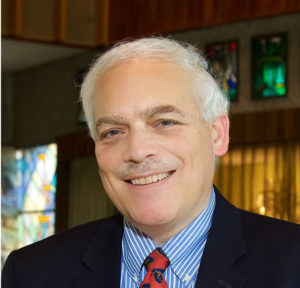Commentary on Parshat Beha’alotecha (Numbers 8:1 – 12:16)
I’ve been watching entirely too much television lately. With the basketball playoffs so riveting for this native Bostonian, two Israeli networks now on Cablevision, and a gazillion movie options streaming, my abundance of options has been a good preparation for this large and unwieldy Torah portion. This portion even has an unwieldy name, Beha’alotecha; it’s a compendium of odds and ends, mostly odd, that don’t fit anywhere else in the Torah, a Chinese restaurant menu of choice.
In Beha’alotecha, you can surf your way from the standard religion channels to HGTV for tabernacle décor, to the Soap Network for stories of domestic betrayal, sickness and healing. Then you’ve got your C-Span – Moses and the council of 70 elders share power, and your Travel Network, as Israel sets forth on the journey from Sinai.
But what I like most of all is the Food Network.
From the moment the Israelites set foot in the wilderness to the very end of the journey, they complain about lots of things, but primarily, they kvetch about food. Here the issue isn’t the scarcity, but rather the lack of variety. They want meat, and they want the fish that was plentiful in good old Egypt. Ah yes Egypt, that fish capital of the world – Gorton’s of Giza. They want leeks, cucumbers and melons, onions and garlic. According to Midrash Rabbah and Rashi, Rav Shimon ascribes more sensual connotations to these items, but I see it for what it is – they want more on the menu. More to the point, they want a menu. They want Wednesday to be Prince Spaghetti Day, but not Thursday and Friday too.
 What’s amazing here is that the food they already had, Mannah, was the tastiest food in the world. Mannah is described as looking like coriander seeds, or smooth peppercorns, and having a bronze, yellow-brownish color. It was made into cakes and tasted like rich cream. Now, if you could choose between having this delicious Haagen Dazs concoction all the time, or a rotation of onions, leeks and fish sticks, what would you select?
What’s amazing here is that the food they already had, Mannah, was the tastiest food in the world. Mannah is described as looking like coriander seeds, or smooth peppercorns, and having a bronze, yellow-brownish color. It was made into cakes and tasted like rich cream. Now, if you could choose between having this delicious Haagen Dazs concoction all the time, or a rotation of onions, leeks and fish sticks, what would you select?
Eighteenth-century commentator Jonathan Eybeschutz posits: “To feel prosperous, it is not enough for people to have everything that is needed. One must have more than one’s neighbors have. The Mannah was psychologically unsatisfying because everyone had it in abundance.”
All too often we look at life as a matter of winners and losers. As Harold Kushner has written, “To see the goal of life as ‘winning’ forces us to see other people as competitors, threats to our happiness. For us to ‘win,’ they have to ‘lose.’”
Maybe this is why the Mannah has that name. In Hebrew it is “mahn.” But it is almost always referred to as THE Mannah, or “Ha-mahn.” This delicious little delicacy turned the entire nation of Israel into a bunch of raving, insatiable, dissatisfied, jealous little Hamans, each one looking over his shoulders at what the other one has.
Sign up to receive Torah from T’ruah in your inbox each week!
But maybe there is another message here about human nature, one that brings us back to the Chinese menu I was discussing earlier. Even if the quality is bad, having the power of choice is paramount. How the Israelites felt about the Mannah is how I feel when there’s no vegetarian option on the menu.
I’m sure we all have our own restaurant stories. Comedians have made a living on the eccentricities of their great-aunts who would ask for a hamburger with the meat “on the side.” Food is a very personal thing – and choice is too.
It’s interesting that the Israeli Ministry of Health has put out a guide to eating with dignity, directed toward caregivers of those with dementia. At the same time, a new Washington D.C. based restaurant chain “Falafel, Inc,” with a clear Palestinian bent, bills itself as “the world’s first falafel food social enterprise,” with the goal of using proceeds to feed and employ refugees around the world. Its motto is “Eat with dignity.”
We all crave food – but equally, we crave the dignity of being able to choose what, how and where we eat. So as we turn our attention to the Farm Bill and the Republican effort to slash food stamps and cut SNAP funding, we need to focus on feeding the hungry. That is a worthy and justifiable endeavor, but we should also recall that the goal of such funding is not simply health, but also basic human rights. People need to dine with dignity, whether at nursing homes, prisons, refugee centers, hospitals or even summer camps. The fact of eating sustains and nourishes our bodies. But beyond that, the act of eating is an essential part of what makes us fully human.
Rabbi Joshua Hammerman has been the spiritual leader of Temple Beth El in Stamford, CT since 1992. He has served as president of the Interfaith Council of Southwestern Connecticut and the Stamford Board of Rabbis, and is a member of the Rabbinic Leadership Council of the Jewish Theological Seminary.

